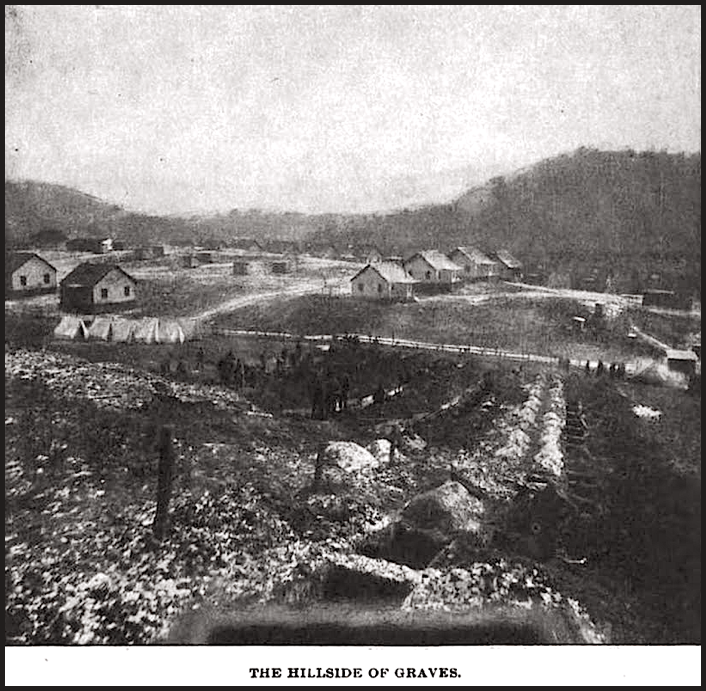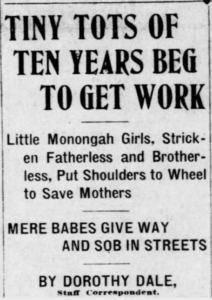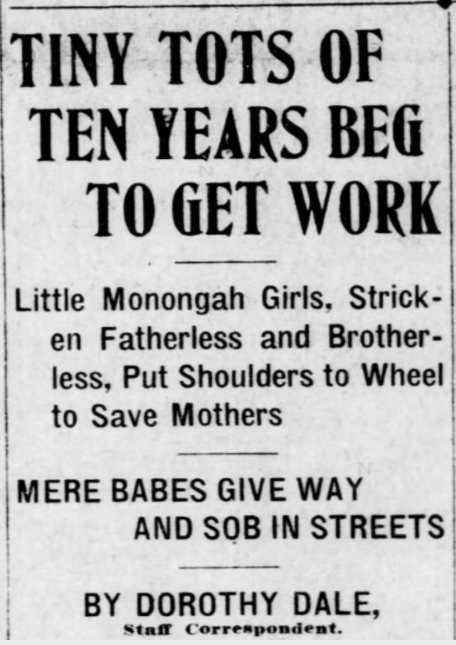And it’s what will I tell to my three little children?
And what will I tell his dear mother at home?
And it’s what will I tell to my poor heart that’s dying?
My heart that’s surely dying since my darling is gone.
-Jean Ritchie
Hellraisers Journal, Friday January 17, 1908
Monongah, West Virginia – A Town of Broken Hearted Women and Girls
New Graves for Half the Town’s Breadwinners
Within a recent edition of the “Weekly Journal of Philanthropy and Social Advance,” Charities and the Commons, we find a long article, written by Paul U. Kellogg and illustrated by Joseph Stella, which tells the heartbreaking story of Monongah in the aftermath of great mine disaster of December 6th of last year. Today we offer a brief example of the writing of Mr. Kellogg along with illustrations by Mr. Stella.
From Charities and the Commons of January 4, 1908:
Monongah
Paul U. Kellogg
…..That morning five priests had held mass in St. Stanislaus’s Church and over twenty coffins were ranged in the low-ceilinged room in the basement. They were the first of one hundred and ten whom Father Joseph Letston counted as lost. Many of his people had come early to the church, a-foot, with bowed heads, sorrowing in low voices, sometimes a woman half held up by her companions, to that basement where the coffin lids closed in on blistered, swollen faces and parts of men. Four or five widows wept convulsively. An older woman read from a religious book held to the flickering light of a candle at the head of a closed coffin. A peasant, ugly with her pitted face, but beautiful in her great sorrow, bent often and kissed the lips of her husband.
All of a sudden there was a cry more piercing than the others. It was from an old mother who had lost seven—her husband, a son, two sons-in-law and three nephews. She had come upon one of them, and the people with her could scarcely hold her. She threw her head on the casket, and spoke to the boy fondly, trying to caress the crumpled face with poor, wrinkled hands. She had moaned all the way that morning from her lonely house to the church door, giving infinite sorrow to those who heard, and here her grief had at last found vent.




